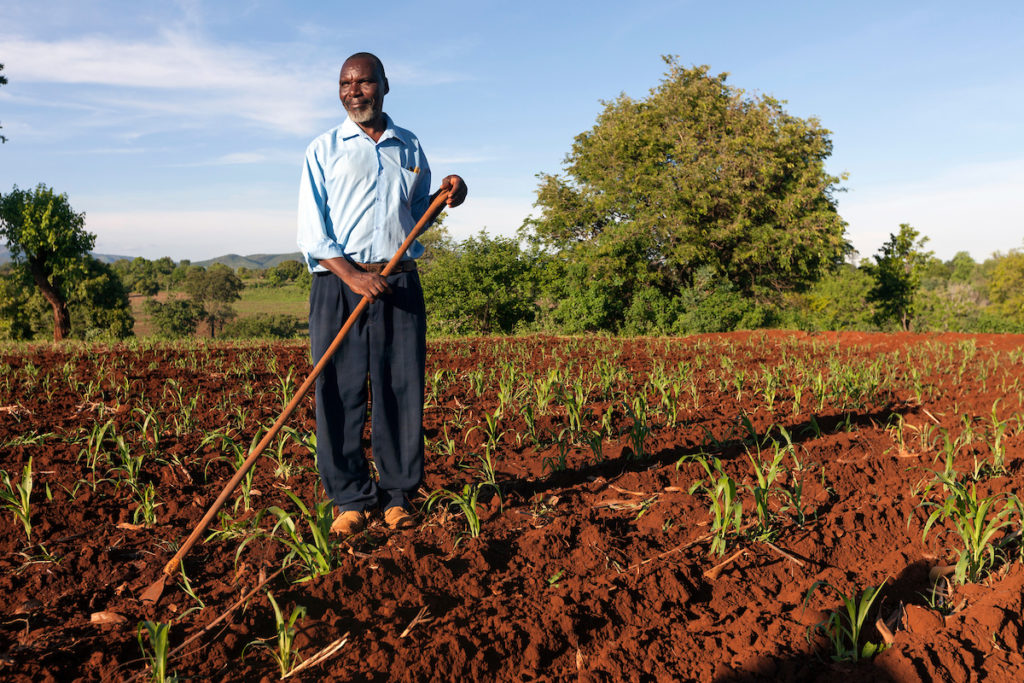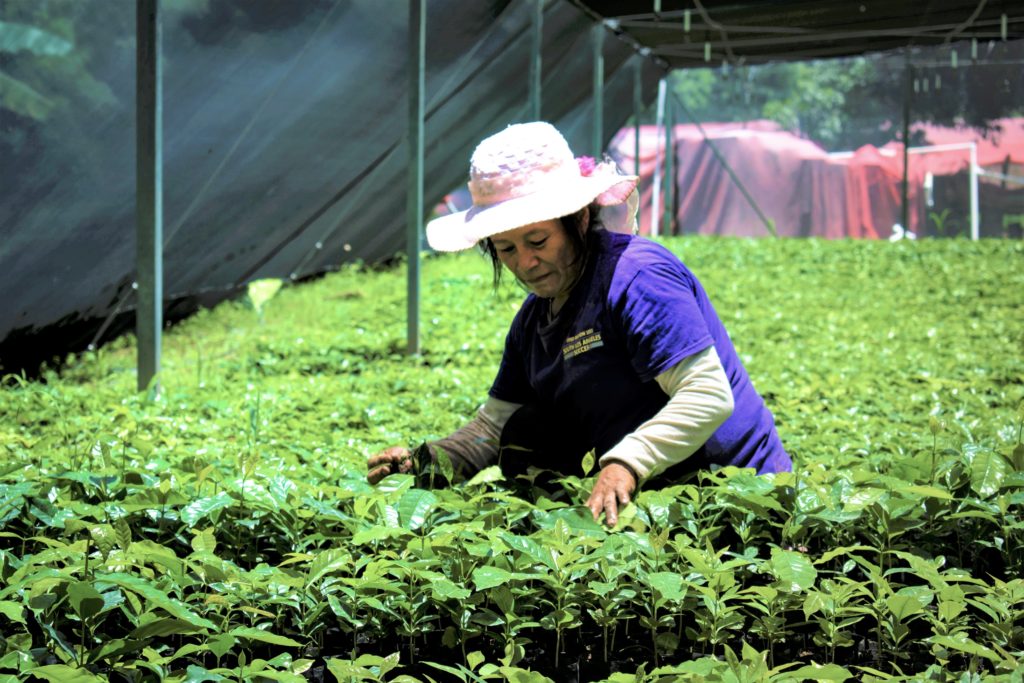“Challenging”
“Sobering”
“Unprecedented”
Words fail to adequately describe 2020. The staggering toll of the pandemic defines this year, but so do examples of hope, unity, and innovation. And not all of those stories made headline news. In the remote communities where Root Capital works, 2020 has also been a year of adversity and adaptation. Here are five lessons we’re taking from this [fill in the blank] year.

1. Agriculture and food systems are the lifeblood of our society.
Do you remember how difficult it was to find flour in your local grocery store back in March? As the pandemic increased demand and disrupted supply, buying basic staples became a logistical nightmare. Many of us experienced for the first time how vital—and fragile—our food systems really are. And many who already live in “food deserts” were pushed into even deeper food insecurity.
Root Capital invests in agricultural enterprises that work at the very start of these supply chains, buying crops directly from smallholder farmers. Many of these businesses also process and add value to the crops they buy, enabling farmers to earn a steady income and ensuring a higher-quality product for you, the consumer. However, this year demonstrated how disruptions anywhere in agricultural markets can destabilize all our lives. And it reaffirmed how important it is to build the resilience of rural communities—our survival depends on theirs.

2. No top-down solutions—ask what communities need.
To design an effective response to any crisis, you need first-hand information on how it’s affecting communities and what responses are already underway. That’s why the #1 priority for Root Capital this year was to understand how our client agricultural enterprises are experiencing the pandemic, so that we can help them build resilience in the face of uncertainty.
In April and June, we surveyed about half of our clients to learn about their most pressing needs. The results were invaluable to us in forming our ongoing response, which has included flexible financing, remote technical assistance, and small grants, all tailored to the unique circumstances of each business. Some clients focused on medical supplies and personal protective equipment for farmers and employees; others prioritized food security for farming families. We put businesses in the driver’s seat because they’re best equipped to design—and implement—effective solutions for their communities.

3. A dynamic crisis calls for a flexible response.
2020 has been a year of disruption. All of us have adapted how we work, communicate, socialize, and move around in the world. While it’s not without challenges, this flexibility has been critical as we deal with an ever-evolving crisis.
At Root Capital, we developed a COVID-19 response that was flexible, while still maintaining laser focus on our mission of building prosperous, inclusive, and resilient rural communities. We pivoted from in-person advisory services to fully remote training on topics from crisis management to financial forecasting, helping more than 150 agricultural enterprises mitigate the impacts of the pandemic. We’ve disrupted our normal lending process to provide debt relief and loan restructuring for impacted clients. And we are looking ahead: Knowing that the crisis does not end with a vaccine, we have long-term plans to help rural communities reimagine resilience. Flexibility was not only necessary this year; it helped us rethink how we serve rural communities, now and in the future.

4. So many of our biggest challenges are interconnected.
The COVID-19 pandemic is not just a public health crisis, but also an economic, education, gender, and racial crisis. This year has truly demonstrated how interconnected these issues are. We must confront them with converging solutions.
Take gender equality. Social and economic disparities between men and women have grown deeper during this pandemic. This September, four times as many women as men dropped out of the US labor force. Globally, the pandemic is predicted to push more women than men into extreme poverty. While gender inequity existed before COVID-19, it has been amplified by these disproportionate impacts. That’s why it’s more important than ever to invest in gender inclusion, especially in rural communities where the disparities are often greatest. This year, Root Capital became part of the global 2X Challenge, which is mobilizing billions of dollars for women’s economic empowerment. In 2020 and beyond, our commitment to rural women remains integral to our mission—because true resilience isn’t possible without meaningful inclusion of half the population.

5. We can’t lose sight of other emergencies.
2020 isn’t just the year of COVID-19. It’s also the most active hurricane and wildfire season on record, and these threats are set to worsen as the pace of climate change quickens. For rural communities, the impacts have been particularly devastating. Locust swarms in East Africa, droughts in South America; in these areas, climate change is not a future crisis—it’s already here.
In the waning months of 2020, Central American communities already reeling from the health and economic effects of the pandemic were hit by deadly hurricanes not once, but twice. Hurricane Iota became the strongest storm ever to hit Nicaragua with winds topping 155mph, mere weeks after the same communities were devastated by Hurricane Eta. Flor de Cafe, a Root Capital client in Nicaragua, estimates as much as 30% of their farmers’ coffee crops were wiped out. It’s a sobering reminder that rural areas are buffeted by colliding crises—we can’t wait for one to pass before we address the other. As we look ahead to 2021, Root Capital is doubling down on climate resilience with a comprehensive plan to innovate and scale grassroots climate action in farming communities.
As this singular year comes to a close, we’re grateful for the support of our global community. With your help, we’ve been able to provide emergency assistance, facilitate innovative solutions, and position farming families for a brighter future. This journey—and our unflagging commitment—continues into 2021 and beyond. Join us.

